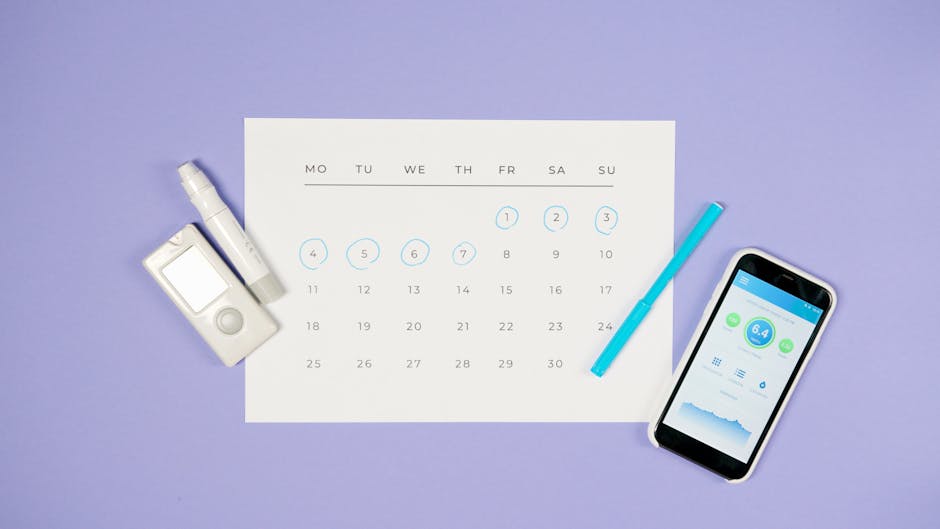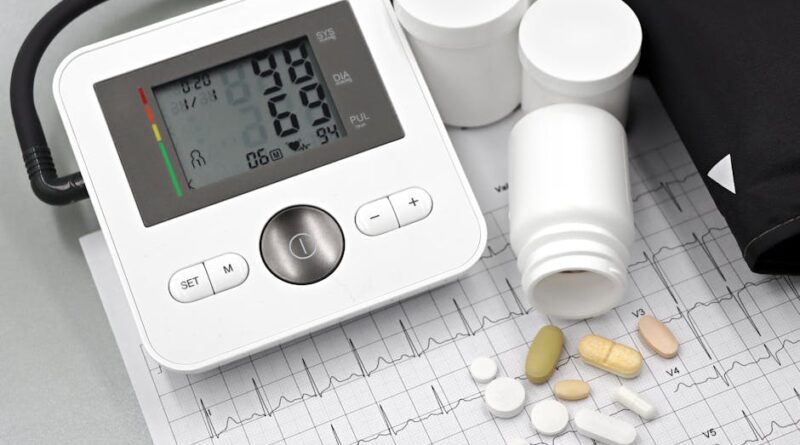Adjusting Your Cholesterol Treatment Over Time
Did you know that nearly 38% of adults in the U.S. have high cholesterol? That’s a staggering number! If you’re one of those individuals, chances are youve wondered about your cholesterol treatment. How often should you adjust it? What does that even mean? Lets break it down.
What is Cholesterol and Why Does It Matter?

Cholesterol is a waxy substance found in your blood. Your body needs it to build healthy cells. However, having too much cholesterol can lead to heart disease, heart attacks, and strokes.
Cholesterol comes in two types: LDL and HDL. LDL, or bad cholesterol, can clog your arteries. HDL, or good cholesterol, helps remove LDL from your bloodstream. Keeping these levels balanced is crucial for your overall health.
How Do You Know if You Need Treatment?

Most people don’t realize they have high cholesterol until a doctor checks it. Regular blood tests can help you keep track. If your levels are high, your doctor might recommend lifestyle changes or medication.
Common signs you might need treatment include:
- High blood pressure
- Family history of heart disease
- Being overweight or obese
- Diabetes
What Are the Treatments for High Cholesterol?

Several options exist for lowering cholesterol. They include lifestyle changes and medications. Heres a quick overview:
- Diet: Eating heart-healthy foods can significantly lower cholesterol.
- Exercise: Regular physical activity can raise HDL and lower LDL.
- Medications: Statins and other drugs help manage cholesterol levels.
When Should You Adjust Your Cholesterol Treatment?

Adjustments may be necessary when:
- Your cholesterol levels do not improve.
- You experience side effects from your medication.
- Your lifestyle changes have not worked as expected.
- Your health circumstances change, like pregnancy or a new diagnosis.
How Often Should You Check Your Cholesterol Levels?
Your doctor will typically recommend you get your cholesterol checked every 4 to 6 years. However, if you have risk factors, more frequent testing may be necessary. It helps keep you informed and allows for timely adjustments to your treatment.
What Role Does Diet Play in Cholesterol Management?
Your diet significantly impacts your cholesterol levels. Foods high in saturated fat and trans fats can raise LDL cholesterol. On the other hand, some foods can help lower it. Consider adding these heart-healthy foods to your plate:
- Oats and barley
- Beans and lentils
- Fruits, especially apples and grapes
- Fatty fish like salmon and mackerel
Making these changes often requires commitment. But even small adjustments can yield big results over time.
How Can Exercise Help Lower Cholesterol?
Exercise is vital for maintaining a healthy heart. Regular physical activity can help raise HDL cholesterol while lowering LDL. Aim for at least 150 minutes of moderate aerobic activity each week. Here are some fun options:
- Walking or jogging
- Cycling
- Swimming
- Dancing
Finding an activity you enjoy makes it easier to stick with a routine. Remember, every bit counts!
What Should You Do If Medication Is Needed?
If your doctor prescribes medication, don’t panic. Medications like statins can be very effective. However, everyone reacts differently. Some may experience side effects like muscle pain or digestive issues.
If you experience side effects, talk to your doctor. They can adjust your dosage or switch you to a different medication. it’s essential to communicate openly about how you feel.
How Can You Track Your Progress?
Keeping track of your cholesterol levels is crucial. Regular check-ups help you and your doctor understand how well your treatment is working. Keep a log of your results and share it with your healthcare provider.
In addition to blood tests, consider tracking:
- Your diet and exercise routine
- Any symptoms you may experience
- Changes in weight or energy levels
What Should You Discuss with Your Doctor?
Your doctor is your partner in managing cholesterol. Be open and honest about your lifestyle, concerns, and any changes you notice. Here are some key questions to ask during your appointments:
- How often should I check my cholesterol?
- What lifestyle changes can I make?
- Are there any side effects of my medication?
Having these discussions can help you make informed decisions about your treatment.
What Are Common Misconceptions About Cholesterol?
Many people hold misconceptions about cholesterol. Here are a few:
- All cholesterol is bad: Remember, HDL is good cholesterol!
- Only older adults need to worry: High cholesterol can affect anyone.
- Medication is the only solution: Lifestyle changes can be just as powerful.
Understanding the facts can empower you to take charge of your health.
How Can You Take Action Today?
Adjusting your cholesterol treatment over time is essential for heart health. Here are some actionable steps you can take:
- Monitor your cholesterol levels regularly.
- Make heart-healthy food choices.
- Engage in regular physical activity.
- Communicate openly with your doctor about any concerns.
Every small step can lead to big changes in your cholesterol levels. Remember, health is a journey, not a destination.
For more information on cholesterol management, visit the American Heart Association at Heart.org.
Adjusting your cholesterol treatment is crucial. With the right approach, you can improve your heart health and lead a vibrant life. Stay informed, stay active, and don’t hesitate to seek help when needed.



